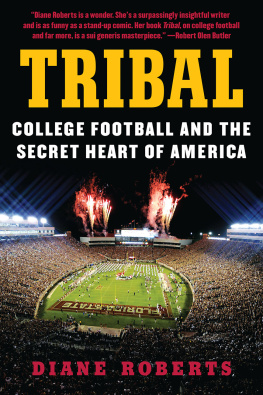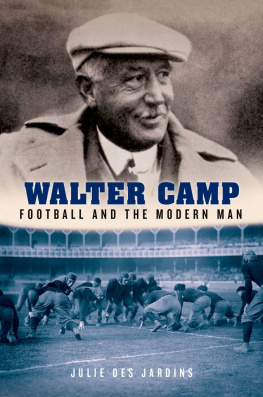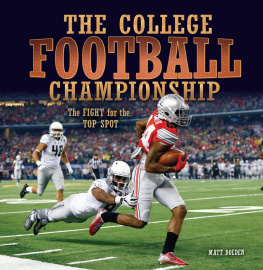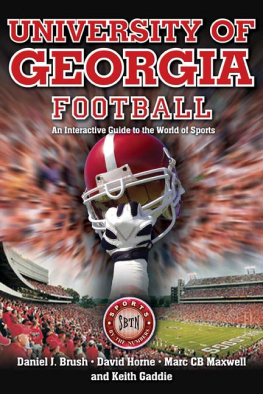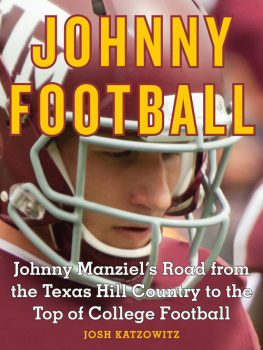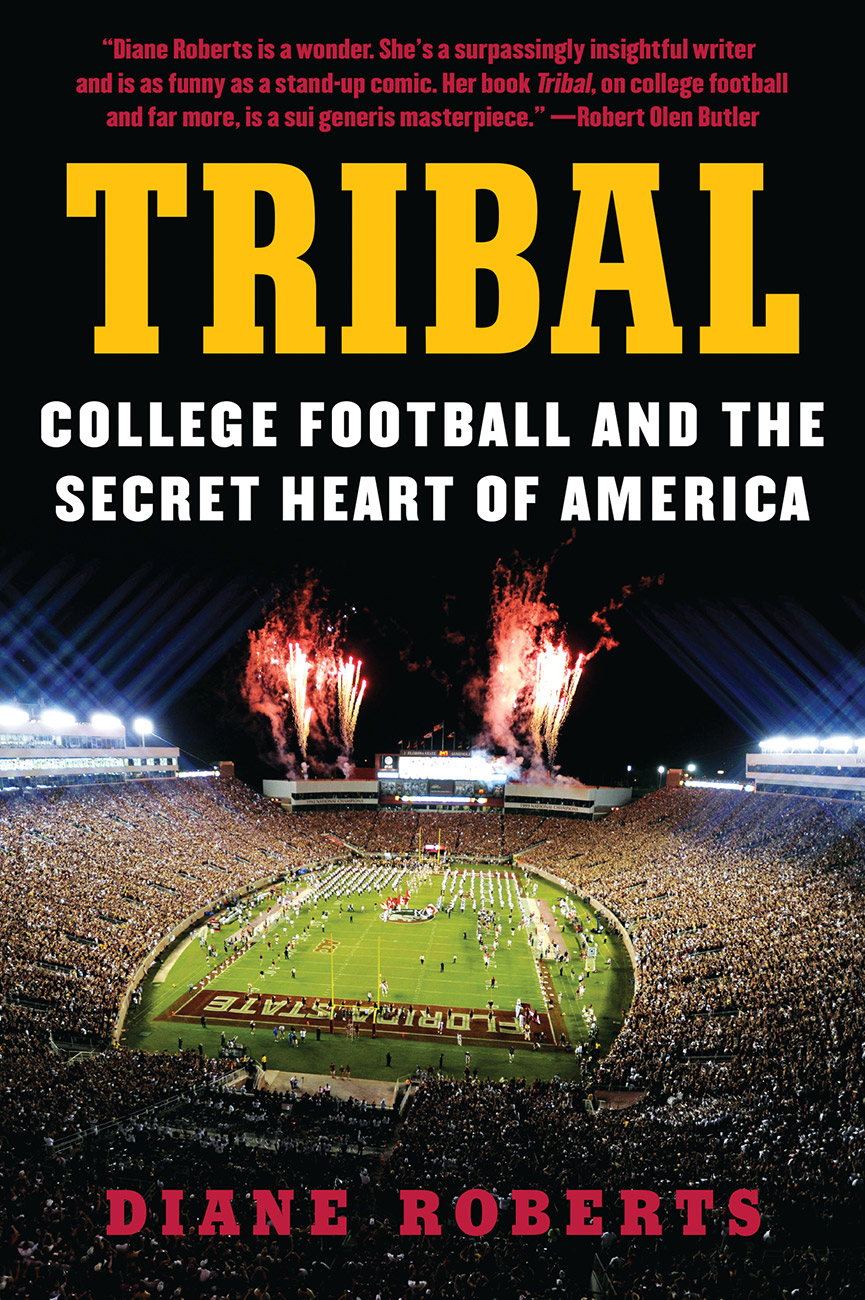CONTENTS
Guide
Australia
HarperCollins Publishers Australia Pty. Ltd.
Level 13, 201 Elizabeth Street
Sydney, NSW 2000, Australia
www.harpercollins.com.au
Canada
HarperCollins Canada
2 Bloor Street East - 20th Floor
Toronto, ON M4W 1A8, Canada
www.harpercollins.ca
New Zealand
HarperCollins Publishers New Zealand
Unit D1, 63 Apollo Drive
Rosedale 0632
Auckland, New Zealand
www.harpercollins.co.nz
United Kingdom
HarperCollins Publishers Ltd.
1 London Bridge Street
London SE1 9GF, UK
www.harpercollins.co.uk
United States
HarperCollins Publishers Inc.
195 Broadway
New York, NY 10007
www.harpercollins.com
TRIBAL. Copyright 2015 by Diane Roberts. All rights reserved under International and Pan-American Copyright Conventions. By payment of the required fees, you have been granted the nonexclusive, nontransferable right to access and read the text of this e-book on-screen. No part of this text may be reproduced, transmitted, downloaded, decompiled, reverse-engineered, or stored in or introduced into any information storage and retrieval system, in any form or by any means, whether electronic or mechanical, now known or hereafter invented, without the express written permission of HarperCollins e-books.
FIRST EDITION
Portions of chapters 1 and 4 appeared in a different form in the Oxford American magazine.
Library of Congress Cataloging-in-Publication Data
Roberts, Diane
Tribal : college football and the secret heart of America / Diane Roberts.First edition.
pages cm
ISBN 978-0-06-234262-1
1. FootballUnited StatesHistory. 2. College sportsUnited StatesHistory. 3. Sports and recreationfootball. 4. Biography and autobiographysports. 5. Biography and autobiographypersonal memoirs.
GV950 .R64 2015
796.332/63
2015025010
EPub Edition October 2015 ISBN 9780062342645
Version 09092016
15 16 17 18 19 OV/RRD 10 9 8 7 6 5 4 3 2 1
For my football godparents,
Charlotte and Ernest Williams
And to the memory of my father,
Milton Roberts

JEFF HAYNES/Reuters/Corbis
YOURE AN INTELLIGENT, cultivated woman, he says. You cannot like college football. You dont like college football.
Hes a historian, a distinguished scholar teaching at a distinguished university in Georgia. Im an English professor at Florida State. Were having lunch: salads, balsamic vinaigrette, decaf, no dessert. Somehow we get onto the subject of football season in the South. He rolls his eyes. The traffic. The noise. Those awful people in awful T-shirts baying in the stands. All for a ridiculous, expensive, violent game played by overmuscled postadolescents.
I am forced to confess: Im one of those awful peoplebetter dressed. The sect to which I belong cleans up pretty for ball games. While the historian reads scholarly articles or composts or binge-watches Game of Thrones, I spend fall Saturdays celebrating the sacraments of my people, following the ordo missae: ESPN Game Day, tailgate, kickoff, four quarters, final whistle, more tailgatethe rituals of the tribe.
Hes right. I dont like college football. Liking is warm, but not scalding; its pleasant, something you can take or leave, not something holding you in thrall, not a force from deep in the unconscious and the gut. Love is closer, maybe, given that its chemical, a brain mystery, beyond free will, beyond reason, a gaudy and ungovernable creature fed on hope and desire.
But if love implies approval, then love wont do either. College football is nasty, brutish, and longat least three hours, four if the games on televisiona great, messy stew of energy, anger, joy, signs, portents, symbols, athletic feats, madness, and what sports announcers call pageantry. Its the preferred sport of Republicans, climate-change deniers, and people who think every American foreign policy issue can be solved by the 101st Airborne. The games in bed (possibly not quite the right term) with fundamentalist Christianity, anti-intellectualism, and retrograde ideas about women and people of color. It costs too much in blood and treasure: at FSU, weve unscrewed half the light-bulbs in some campus buildings and removed phones from professors offices to save money. The library is having to cut databases and slow way down on buying books. The football stadiums getting an $81 million makeover. College football is Big Business masquerading as play, savagery sanctioned by the very institutions of higher learning founded to civilize us, a quasi-fascistic spectacle complete with uniforms, martial music, slogans, and an excess of testosterone. The crowd howls for harder hits; the boys on the field wreck their shoulders, their knees, their backs, their brainssometimes for life. The NCAA always says its studying the problem.
Yet there I am, every Saturday from late August to early January. I guess you could say Im conflicted. Im like those people who arent sure they believe in the Virgin Birth and the literal Resurrection but still show up for church because they like the music and take solace in the liturgy. Im a Seminole lifer: I grew up in Tallahassee, looking forward to the rhythm of fall Saturdays, making potato salad for the tailgate, making sure for the fourteenth time that we had the tickets and the parking pass and the corkscrew, singing the fight song and spelling F-L-O-R-I-D-A S-T-A-T-E (proving that education in Florida is not completely a lost cause), settling in to experience the ecstasy and terror of the contest.
Believe me, Ive tried to abjure the realm of college football. I fully expected to outgrow it, though my mother (age eighty-three) and my football godparents (ages eighty-five and eighty-six) have yet to do so. During the ten years I lived in England, I figured my college football obsession would wear off. It didnt. On Monday mornings in the Common Room, Id snatch the International Herald Tribune out of the blameless hands of whatever economics grad student was trying to look at the stocks, and check the score from Saturdays games. This was in olden times, before the Internet, before smartphones. An international call would have cost at least twenty bucks, so it had better be a crisis before I rang home. Like during the annual FSU-UF game.
The United States is the only nation sufficiently deranged to make a life-and-death matter of college sports. The United States is the only country in which so-called student-athletes can generate billions of dollars in profit just by excelling at running, tackling, blocking, throwing, and catching. Not that the student-athletes are getting rich. The NCAA, the universities, the licensers of official college-branded merchandise, Nike, Under Armour, sports broadcasterstheyre the ones doing well off college football.
But long before the money, before the dedicated college-football channels and Web sites and radio shows, before the live Signing Day and Heisman extravaganzas and the NFL draft and tailgating and skyboxes, there was passion and violence and pain. The game was never a simple pastime: by 1869, when Rutgers and Princeton met for whats considered the first official college football game, it had already become a trial of honor, loaded with dramatic importance. On October 30, 1897, the

